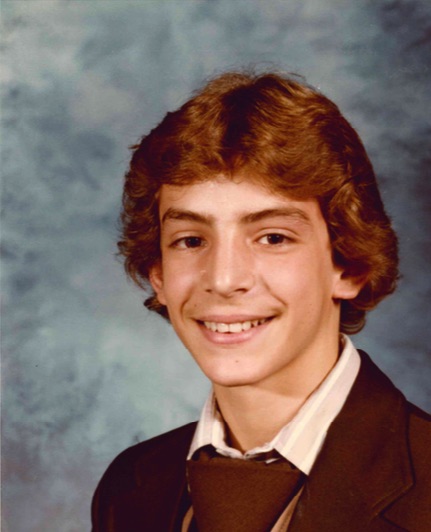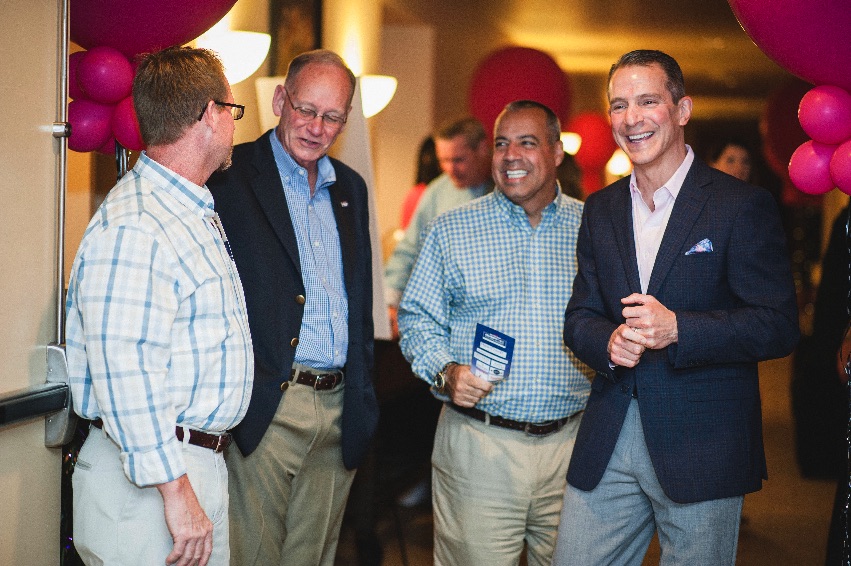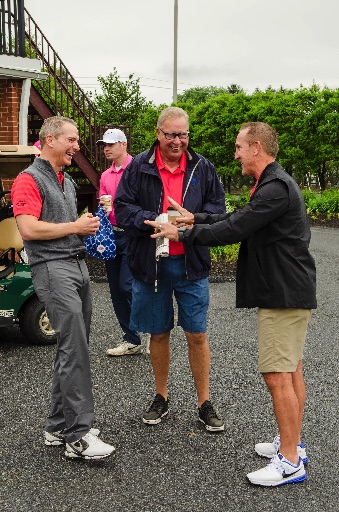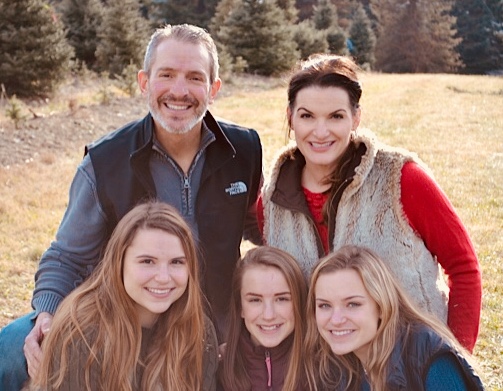Montco Leadership: Rory G. Ritrievi, president and CEO, Mid Penn Bank, parent of First Priority Bank

 Rory G. Ritrievi, President and CEO of Mid Penn Bank, the parent of Malvern-based First Priority Bank, spoke with VISTA Today about growing up in Harrisburg, having a job since he was eight years old, and entering college as a dentistry major but eventually switching to economics.
Rory G. Ritrievi, President and CEO of Mid Penn Bank, the parent of Malvern-based First Priority Bank, spoke with VISTA Today about growing up in Harrisburg, having a job since he was eight years old, and entering college as a dentistry major but eventually switching to economics.
He also discussed who gave him his big breaks in his banking career, Mid Penn Bank’s recent acquisition of First Priority Bank, and what the future looks like for his bank after it doubled in size over the past year.
Where were you born and where did you grow up, Rory?
I was born and raised in the Allison Hill section of Harrisburg, which is a diverse, low-income neighborhood on the southeast side of the city.
What did your parents do?
My parents were divorced when I was a couple of years old. My stay-at-home mom raised my five brothers and me on her own. Needless to say, we were far below the poverty line. Living in that environment in Harrisburg at the time was tough.

What memories do you have of growing up in Allison Hill?
I fall right in the middle of my brothers – I have three older brothers and two younger brothers. There was only an eight-year gap between the oldest and the youngest. Even though we were close in age, we did not do much together because we each had our own friends and spent most of our time with them.
In the summers we worked so we could contribute to the household, or in our spare time, we played sports. We played pickup basketball, sandlot football, baseball, street hockey – whatever we could turn into a competition.
Going to a city school, we didn’t have any grass, so we had to get creative. At one point, I was playing football with a rolled up canvas book bag as the ball.
What was your favorite sport to play?
I liked playing football more than any of the other sports, but I was a small kid. I didn’t have a growth spurt until college, so playing organized football in high school was difficult.
I liked football because of the complexities of the sport. I liked drawing up plays in the dirt which needed all the players to do their part to assure success. Many of the leadership skills that I now have were developed through playing football as a youngster.
Were you a leader in your group?
I tended to be the organizer. When I was in 8th grade, my best friend Jim Burns and I went to freshman orientation at our proposed high school. While the student body president was giving a speech to the incoming freshman, I leaned over to him and I said, “In four years, I’m going to be the President, and you’ll be the Vice President.” Four years later, that came true.
Where did your confidence come from?
I think it comes from the environment in which I was raised. My oldest brother Joe, as the “man of the house” was very mature for his age, because he had to be, and he instilled a lot of confidence in me. My grandmother, a strong woman, insisted through hard work and a plan, that we could become anything we wanted.
What was your first job?
I’ve had a job since I was eight years old. I sold copies of the Grit newspaper, a publication based out of Williamsport. It was a monthly paper full of good news stories. Through their business model, paperboys would buy the supply of Grit newspapers ahead of time. At a set price per copy the carrier could resell them at whatever price they could get. I borrowed $5.00 for my first supply and I made enough after the first few cycles to pay back the original loan and to pay for the next month’s supply. It was a great first job because it taught me about taking chances, borrowing money, and paying it back.
I did this for about a year. I stopped selling Grit because I lived in a tough neighborhood, and people knew I was making money, so I didn’t want to walk around with that money in my pockets. After that, I was a newspaper carrier for the Patriot-News for a few years.
When I was 13, I started working my first hourly job. My mom’s friend took me to the Department of Labor and swore to them that I was 14 years old. I went to work for a place called The Park Cafeteria in downtown Harrisburg. It was a restaurant with a catering component, so I worked as a busboy in the cafeteria or at the parties they were catering. I worked 4 to 5 nights a week and did that for the remainder of high school.
What lessons did you take from those jobs that stay with you today?
When I worked for the Grit paper, I learned about the importance of risk taking and sales. The lesson came from buying the newspapers ahead of time and understanding that, if I didn’t sell them, the loss was on me. Despite the weather or if I was sick, I still had to go out and sell them.
When working at the Patriot-News, I had 80 households on my route. The Sunday paper was always huge, so it was the tendency for many of the carriers to toss the newspaper in the driveway and go to the next house. My approach was to walk it up to the door and knock to let the people living there know the paper arrived and kept it out of the elements. I always received more tips when handing out the holiday calendar!
At the restaurant, it was the first time I had more than one boss. The owner and his son, who often ran the place, had very different personalities. That situation taught me how to deal with different personalities.
Where did you go to college, Rory?
The University of Pittsburgh.
I was always a good student, but I didn’t work as hard as I should have. I was reading newspapers and had a subscription to both Money Magazine and the Wall Street Journal when I was in my early teens. I applied to the University of Pittsburgh, Clarion University, and University of Maryland Baltimore County (UMBC). I really wanted to go to Pittsburgh to become a dentist, but I changed my major halfway through college to Economics.
One of my three daughters goes to Pitt, and the second one just committed to attending next year. I guess that makes us a Pitt family.

Looking back, who were the people who gave you your big breaks?
A woman named Kathy Borkren hired me at Hamilton Bank, the first bank I worked at after college. I thought the interview with Kathy was awful, and I walked out thinking there was no way they were going to hire me. Much to my surprise, I did get hired. Every subsequent interaction I had with Kathy was awful. She was always so tough on me.
In my second year, she left the company. At her going away party, she told me she was tough on me because out of everyone who worked for her, she thought I had the most potential. At that time – it was 1987 – I did not think I was going to make it in banking. Her words really inspired me.
What do you think Kathy saw in you?
I have always been mentally tough, which I attribute to growing up in the environment that I did, and I think she saw that toughness. She saw my work ethic as well. Despite not grasping some concepts as quickly as others in the training program, no one outworked me.
Were there other people who gave you a break along the way?
John Noone was my boss at Pennsylvania National Bank in the early 1990s after I became a commercial lender. John taught me how to go after the right customers; always be the first to return calls; always do what you say you’re going to do; never overpromise and under deliver. John got out of banking long ago, but he’s a board member at Mid Penn Bank. Under John, I learned what it meant to be a professional.

Another mentor of mine is Ray Wolfe, the CEO of a bank that Keystone Financial bought in 1997. I met Ray before the deal took place, and once the deal went through, Ray told the CEO of Keystone that he wanted me to manage his home market in Carlisle, PA. That was when I became more than just a commercial lender. I had the opportunity to oversee the branches, lending functions, and residential mortgages because Ray gave me a chance to manage an entire marketplace.
Why did Mid Penn Bank acquire First Priority Bank?
What we are trying to build is a community bank organization that can serve communities anywhere in Pennsylvania. Some of those communities will have a central Pennsylvania dynamic, while others will have a western or southeastern Pennsylvania dynamic.
We bought a bank earlier this year in western Pennsylvania called Scottdale Bank and Trust. That bank and First Priority Bank could not have been more different in terms of markets, balance sheet structures, and money making strategies. When I saw the opportunity to do both of those things in one year, we jumped at it. The products and services both banks delivered were complimentary to one another.
I’ve always loved the metropolitan Philadelphia area because of the dynamics in Bucks, Montgomery, Chester, and Delaware counties.
Whenever we acquire a bank, we want to purchase an organization that is already in good standing but can really take off with additional guidance and resources. David Sparks created First Priority, and it’s a great bank. We will buy a bank and will take care of its operational, IT and administrative functions. We’ll provide the best products and services to sell, and then help with business development in a very competitive, complicated environment.
Ten years ago, when I came to Mid Penn Bank, we were a $500 million community bank, and we’ve grown immensely since then. We hire, educate, and motivate a strong business development team to ensure there is a strong focus on that aspect of the business. We insist on hiring the best people and structuring a plan for them to be successful.
Looking forward, what are your opportunities and priorities moving forward?
We doubled the size of the bank and the number of people who work for the bank in just one year. With those new markets and new employees, the challenge is to fully integrate one consistent culture. With different bank names across the state, it’s essential to have a strong focus on continuity. That’s where my attention will be over the next few months.
Going into 2019, we have great opportunities to grow in the Delaware Valley, Berks County, Harrisburg, Lancaster, Western Pennsylvania, and the Schuylkill/Luzerne regions. These areas are vastly different from one another, so we have to approach each of them differently. What they do have in common is the want and need for a community bank that provides solutions to their financial needs.

If we can put the people in place to do that, I think we will have a great deal of success. We are set up in a regional structure, where the president of the Delaware Valley region has full authority over the company and the personnel. His name is Mark Biedermann. Mark has lending authority, a credit team, retail offices, and trust and brokerage employees. He knows the market and understands the clients and customers better than I do. He’s delivering our plan in that area.
We have a fully functioning bank in each location, with our employees working, living, and raising their families in each market, so I think that helps as well.
Finally, Rory, what’s the best piece of advice you’ve ever received?
There was a guy I met in college who once said to me, “The harder you work, the luckier you get.” At the time, I did not understand what he meant, but I grew to appreciate it over time. He was saying that the harder you work, the more you put yourself in opportunities to achieve success. Don’t just sit around and wait for luck; work hard to find the luck and the opportunities.
Stay Connected, Stay Informed
Subscribe for great stories in your community!
"*" indicates required fields


![ForAll_Digital-Ad_Dan_1940x300[59]](https://montco.today/wp-content/uploads/sites/2/2022/06/ForAll_Digital-Ad_Dan_1940x30059.jpg)

























![95000-1023_ACJ_BannerAd[1]](https://montco.today/wp-content/uploads/sites/2/2023/03/95000-1023_ACJ_BannerAd1.jpg)













